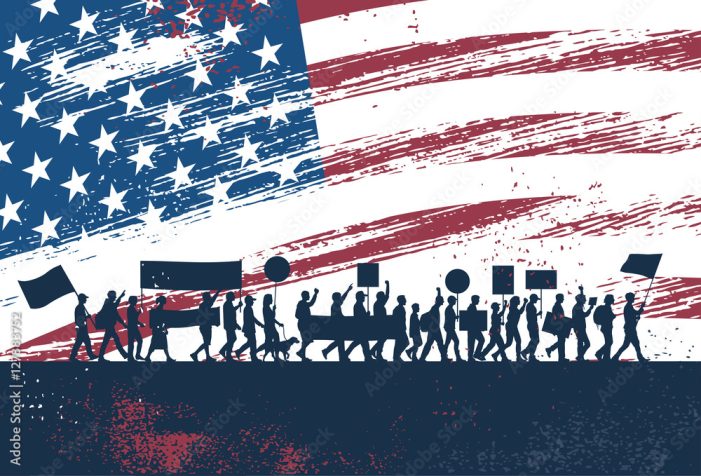Rockwall, TX (June 28, 2024) – No disease was needed to shut down April-May classes and commencement ceremonies this year. It appears that illnesses of the emotional type are equally contagious. Those staples of modern American culture—offense and outrage—so easily feed these epidemics.
It’s no surprise that college students have the vigor needed to sustain a long protest. They are typically consumers (mostly paying for housing and tuition with unearned dollars) as opposed to producers. They might miss classes but not paychecks.
“Much study is a weariness of the flesh,” observed King Solomon (Ecclesiastes 12:12*). This could be one excuse for spring madness among protesting students, though they clearly had strong motivation. However, “The anger of man does not produce the righteousness of God” (James 1:20).
The younger generation is more apt to react against any wrong—real or perceived. They see the world with fresh eyes, and their desire to affect change is often well-founded and sometimes righteous as they seek a better future for themselves and the less fortunate. Such passion—especially when it springs from compassion—is commendable, something those of us who can no longer sit cross-legged in a tent for days should admire.
However, if believers in Christ were missing from the recent encampments, there are reasons. Most obviously, those disruptions on behalf of victims of war led to more victims: college administrators and staff, students and their families, police and security workers, businesses, vendors, and untold others. Countless losses at a costly price accommodated the protestors’ free speech. More troubling, though, besides destructive behavior, has been the underlying hatred toward a nation and its people.
Other reasons Christians should avoid events that stir up trouble can be found in an epistle of Paul: “Remind them to be submissive to rulers and authorities, to be obedient, to be ready for every good work, to speak evil of no one, to avoid quarreling, to be gentle, and to show perfect courtesy toward all people” (Titus 3:1, 2).
Those words, “every good work” relate to that consumer-versus-producer status of young adults. As they merge into the working world, they’ll become both. Producing income allows for greater consumption of goods and further allows us to support those causes we care about. Helping to provide for the needs of others as opposed to railing about distressing events also eases our anxieties concerning them.
The apostle Paul further wrote, “We ourselves were once foolish, disobedient, led astray, slaves to various passions … hated by others and hating one another” (Titus 3:3). It is hatred itself that leads to murder (1 John 3:15), which means that protesting a wrong with hate will only add to the problem.
Paul continued, saying, “But when the goodness and loving kindness of God our Savior appeared, he saved us…” (Titus 3:4, 5). This “loving kindness” comes from the Greek word philanthropia, the love of humanity. “God so loved the world…” (John 3:16).
In Christ, there is no distinction between nations and people, “for the same Lord is Lord of all, bestowing his riches on all who call on him” (Romans 10:12). Whether it’s war, politics, racism, or any other concern, we must cry out to God instead of man.
War and injustice will not end until sin is no more, but our rage and bitterness will cease as sin is defeated in us through Christ. We find peace as we trust in him.
In our homes, schools, communities, and institutions, we can demonstrate—without pitching a tent—the love of God that produces reconciliation and hope in the world.
*ESV Scriptures throughout
 By Patti Richter. Patti writes and edits Christian faith articles and has co-authored Signs of His Presence: Experiencing God’s Comfort in Times of Suffering (March 2019). Read more of her essays at blueribbonnews.com/category/faith.
By Patti Richter. Patti writes and edits Christian faith articles and has co-authored Signs of His Presence: Experiencing God’s Comfort in Times of Suffering (March 2019). Read more of her essays at blueribbonnews.com/category/faith.







